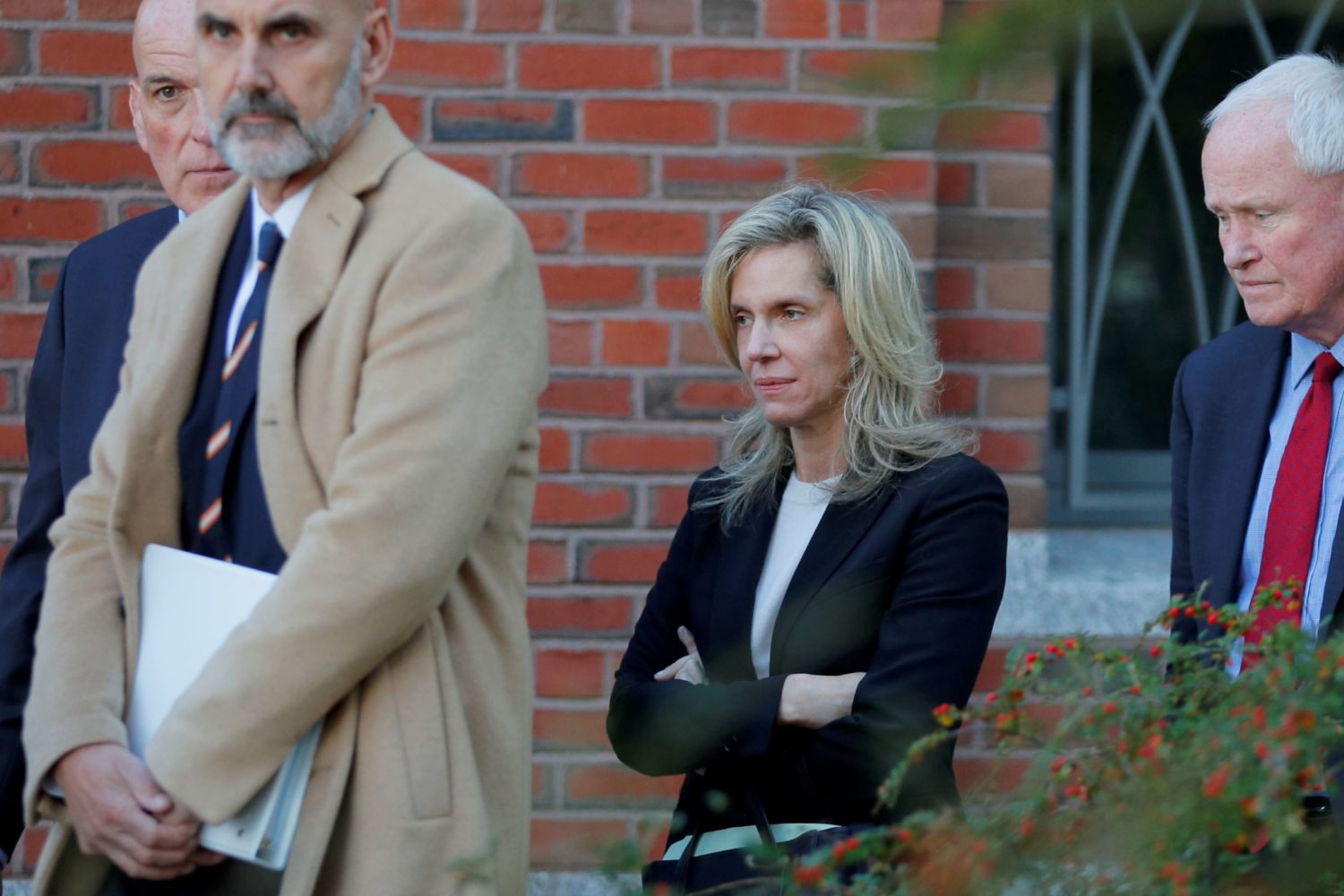
Parenting book author gets prison for U.S. college admissions scam
By Nate Raymond
BOSTON (Reuters) – A marketing executive who authored a parenting advice book was sentenced on Wednesday to three weeks in prison for taking part in a vast U.S. college admissions cheating and fraud scheme in order to help her son gain an unfair advantage.
Jane Buckingham, 51, received less than the six-month prison term that federal prosecutors in Boston sought after she admitted to paying $50,000 to have a corrupt test proctor secretly take the ACT college entrance exam on her son’s behalf.
U.S. District Judge Indira Talwani rejected a request by defense lawyers to sentence the author of “The Modern Girl’s Guide to Motherhood” to probation after noting other wealthy parents also received prison time for their roles in the scheme.
“It’s a serious crime,” said Talwani, who also ordered Buckingham to pay a $40,000 fine.
Buckingham is among 52 people charged with participating in a scheme in which wealthy parents conspired with a California college admissions consultant to use bribery and other forms of fraud to secure the admission of their children to top schools.
William “Rick” Singer, the consultant, pleaded guilty in March to charges he facilitated cheating on college entrance exams and helped bribe sports coaches at universities to present his clients’ children as fake athletic recruits.
The 35 parents charged since March include “Desperate Housewives” star Felicity Huffman, who last week began serving a 14-day prison term after pleading guilty, and “Full House” star Lori Loughlin, who is fighting the charges.
Prosecutors said Buckingham, the founder of a successful marking firm in California, in 2018 paid Singer $50,000 to have an associate take the ACT entrance exam in place of her son in order to inflate the score.
The associate was Mark Riddell, a counselor at a Florida private school who has pleaded guilty to taking SAT and ACT college entrance exams in place of Singer’s clients’ children or correcting their answers while acting as a test proctor.
In court, Buckingham apologized for her conduct, saying “nothing will ever make up for what I’ve done.”
“I really want to apologize to the families and children who didn’t have the advantages we did,” she said. “It was wrong, and it was unfair.”
(Reporting by Nate Raymond in Boston; Editing by Chris Reese)



